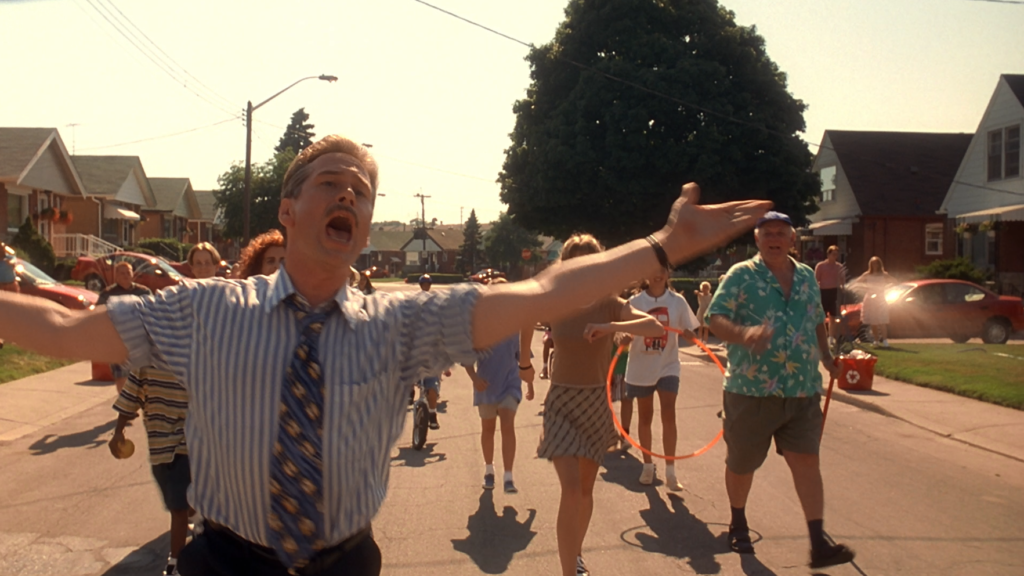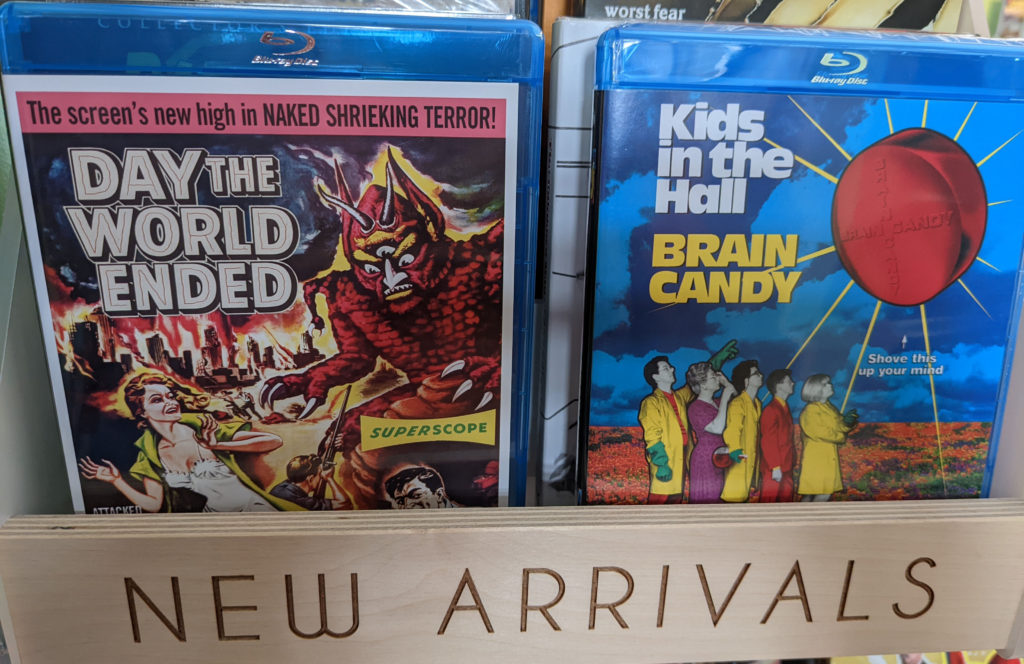
Welcome back to Midnight Video, the video store I opened in my basement! Here’s a quick update on what I’ve been watching.
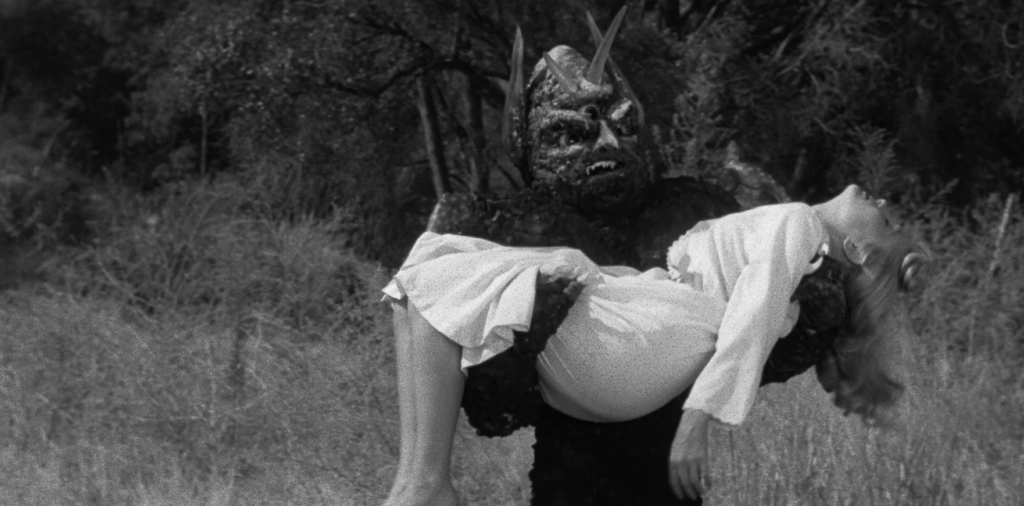
Day the World Ended
New Arrivals
Another Shout Factory limited edition website release, Day the World Ended (1955) is the second film directed by Roger Corman. As with most of Corman’s output (barring the occasional A Bucket of Blood or Little Shop of Horrors), this can be easily classified, in this case as a post-apocalyptic tale with the remaining survivors at each other’s throats – although it beat the most high-profile example, The World, the Flesh, and the Devil (1959), by a full four years. Corman, whether as director or producer, is a reliable entertainer, and Day the World Ended takes its potboiler idea and milks it for all it’s worth. Two survivors, a father and daughter (Paul Birch and Lori Nelson), are hunkered down in their home in a highly radioactive, depopulated, post-nuke Earth. They have just enough supplies to scrape by for the rest of their lives – until they are interrupted by strangers, who borrow their shelter and food. Two of the strangers, a gangster and his stripper gal (Touch Connors, aka Mike Connors, and Adele Jergens), plot the murder of the others so they can survive – at one point, the song “Ten Little Indians” is discussed. Another survivor is a friendly, intelligent geologist (Richard Denning of Creature from the Black Lagoon) who tries to keep everyone from killing each other.
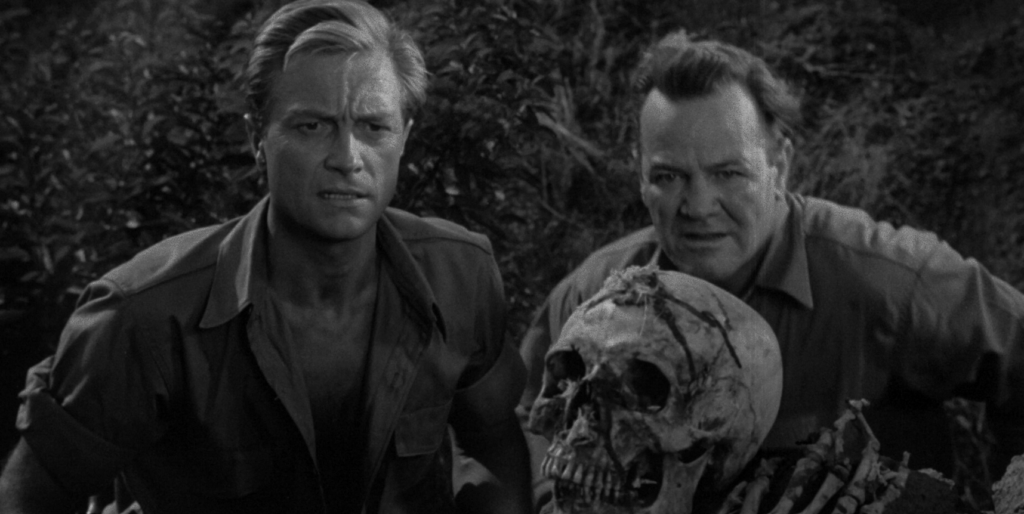
Complicating matters are dangerous mutated humans (with great claws and oozing faces) and animals, including a monkey which has somehow become a hulking creature with horns and three eyes. Yes, Corman actually delivers on the film’s classic 50’s exploitation poster art, though the end result is more goofy than terrifying. He also keeps the pace lively, with the occasional fistfight and one surprisingly graphic scene in which Connors throws Jergens off a cliff. (The realistic dummy hits just about every rock on the way down.) Otherwise you’re in for more or less what you’d expect: lots of people growling at each other, discussing plans for repopulating the human race, and Jergens listening to a lot of sexy jazz music on the radio while snapping her fingers or practicing her striptease (with her clothes on). The end title card says “THE BEGINNING,” which was probably confusing for those who came in late. Notably, the Blu-ray features a new 40-minute interview with Corman that covers his entire career.
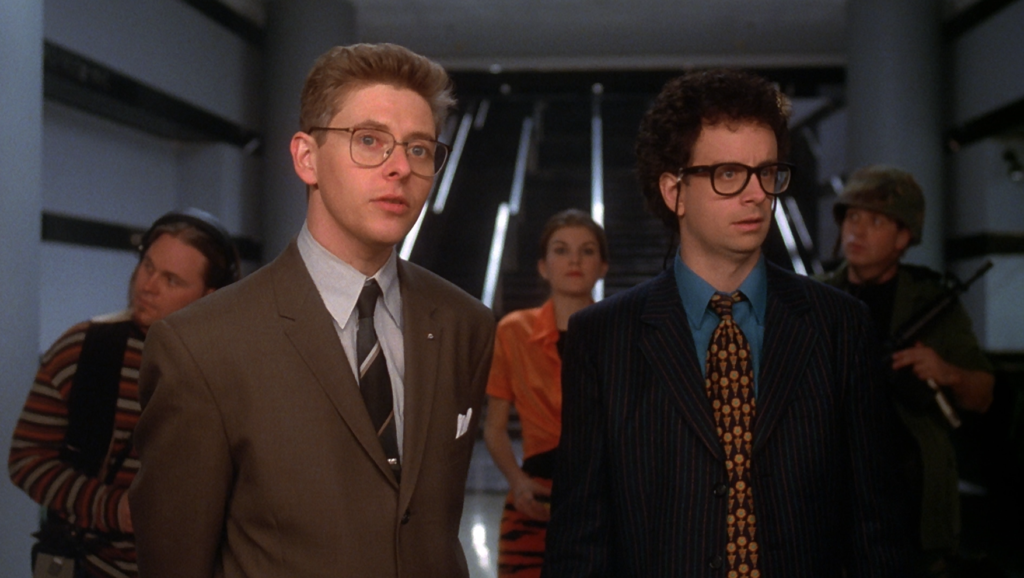
Kids in the Hall: Brain Candy
The great Canadian sketch comedy group Kids in the Hall are returning to the small screen this year (on Amazon Prime) and also receiving a career retrospective documentary. I’ve been revisiting their original show in the meantime – a staple of my high school years, when I caught it on Comedy Central – as well as their only feature film effort, Kids in the Hall: Brain Candy (1996), newly available on a minimum-effort Blu-ray from Paramount. (Seriously, this thing doesn’t even feature the title of the film on the menu screen, let alone a chapter menu.) The film was intended to launch a series of films for the group, a la Monty Python, but such never came to pass: the underpromoted film flopped at the box office, and the group was already in the midst of breaking up. Dave Foley, whose star was on the rise with the cult sitcom Newsradio, wasn’t even on speaking terms with his sketch teammates when he was shooting his scenes for Brain Candy. Subsequently, they refused him writing credit on the film – for which they later expressed remorse – and he doesn’t feature as heavily in the film as do the others: Bruce McCulloch, Kevin McDonald, Mark McKinney, and Scott Thompson. McDonald plays the lead (Graham Chapman-like), the inventor of a Prozac-like drug which allows the user to revisit their happiest memory. After the drug becomes a massive hit, he learns that it has a nasty side effect: permanent coma. This is pretty dark subject matter for a comedy film, but as satire it’s on-point throughout, and there are some very, very funny pieces here: a closeted dad (Thompson) whose secret is known to everyone but himself, culminating in the hilariously low-rent musical number “I’m Gay”; a rock singer (McCulloch) who sheds his dark and edgy persona once he takes the pill, and finds a hit song with “Happiness Pie”; the narcissistic drug company CEO (McKinney), whose mannerisms uncannily resemble KITH producer Lorne Michaels; someone called “Cancer Boy” (McCulloch); a flashback involving a grandma (Thompson), her grandson, and a large number of balloons (which leads to the funniest line in the film, coming after the end credits). If the film lacks a big comedy set piece to really make it stick in the memory – something the Pythons were quite good at – it’s still an underrated gem that is consistently funny throughout, emphasizing the Kids’ talent for creating lived-in characters, both in and out of drag.
